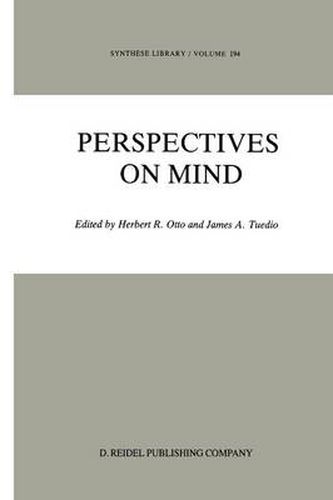Readings Newsletter
Become a Readings Member to make your shopping experience even easier.
Sign in or sign up for free!
You’re not far away from qualifying for FREE standard shipping within Australia
You’ve qualified for FREE standard shipping within Australia
The cart is loading…






This title is printed to order. This book may have been self-published. If so, we cannot guarantee the quality of the content. In the main most books will have gone through the editing process however some may not. We therefore suggest that you be aware of this before ordering this book. If in doubt check either the author or publisher’s details as we are unable to accept any returns unless they are faulty. Please contact us if you have any questions.
Phenomenology and analytic philosophy have skirmished often, but seldom in ways conducive to dialectical progress. Generally, the skirmishes seem more political than philosophical, as when one side ridicules the methods of the other or criticizes the viability of the other’s issues and assump tions. Analytic interest in third person objectivity is often spurned by Continental philosophers as being unduly abstract. Continental interest in first person subjectivity is often criticized by analysts as being muddled and imprecise. Logical analysis confronts the power of metaphor and judges it too ambiguous for rigorous philosophical activity. The language of metaphor confronts the power of logical analysis and deems it too restric tive for describing the nature and structures of authentic human exper ience. But are the two approaches really incompatible? Perhaps because each side of the divide has been working at problems largely uninteresting to the opposition it has been easy to ignore or underestimate the importance of this issue. But now each side is being led into a common field of problems associated with the nature of mind, and there is a new urgency to the need for examining carefully the question of conceptual compatibility and the potential for dialogue. Analytic thinkers are typically in the business of concept clarification and objective certi fication. Continental philosophers employ introspection in the interest of a project of description and classification that aims to be true to the full subtlety and complexity of the human condition.
$9.00 standard shipping within Australia
FREE standard shipping within Australia for orders over $100.00
Express & International shipping calculated at checkout
This title is printed to order. This book may have been self-published. If so, we cannot guarantee the quality of the content. In the main most books will have gone through the editing process however some may not. We therefore suggest that you be aware of this before ordering this book. If in doubt check either the author or publisher’s details as we are unable to accept any returns unless they are faulty. Please contact us if you have any questions.
Phenomenology and analytic philosophy have skirmished often, but seldom in ways conducive to dialectical progress. Generally, the skirmishes seem more political than philosophical, as when one side ridicules the methods of the other or criticizes the viability of the other’s issues and assump tions. Analytic interest in third person objectivity is often spurned by Continental philosophers as being unduly abstract. Continental interest in first person subjectivity is often criticized by analysts as being muddled and imprecise. Logical analysis confronts the power of metaphor and judges it too ambiguous for rigorous philosophical activity. The language of metaphor confronts the power of logical analysis and deems it too restric tive for describing the nature and structures of authentic human exper ience. But are the two approaches really incompatible? Perhaps because each side of the divide has been working at problems largely uninteresting to the opposition it has been easy to ignore or underestimate the importance of this issue. But now each side is being led into a common field of problems associated with the nature of mind, and there is a new urgency to the need for examining carefully the question of conceptual compatibility and the potential for dialogue. Analytic thinkers are typically in the business of concept clarification and objective certi fication. Continental philosophers employ introspection in the interest of a project of description and classification that aims to be true to the full subtlety and complexity of the human condition.